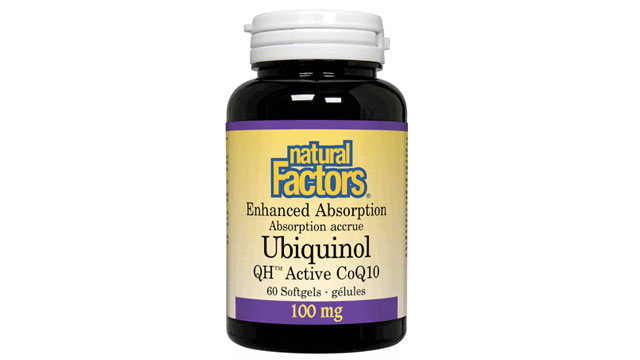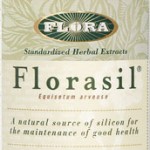As a practitioner, I am pleased to inform readers about Natural Factors new Ubiquinol QH Active CoQ10. While it is well known that CoQ10 is essential for heart health, energy needs, and robust health as one ages, absorption of the ubiquinone form has always been problematic. This all changes with ubiquinol CoQ10. The ubiquinol form is eight times more absorbable than the ubiquinone form, which is why doctors and nutritionists are increasingly recommending this type of CoQ10 to patients.
Ubiquinol is the predominant form of CoQ10 in the human body and the only form that is absorbed directly. Peer-reviewed studies confirm its superior bioavailability over ubiquinone.
Ubiquinol CoQ10, vital for anti-aging
Many people diagnosed with high cholesterol take prescribed statin drugs. Paradoxically, statin drugs deplete the body of CoQ10, an essential nutrient for a healthy heart, which is why ubiquinol CoQ10 should be suggested for anyone taking statin drugs.
Also as one ages, the body produces less CoQ10. By age 40, the drop in CoQ10 production accelerates, and by age 50 the signs are visible—the brain is not as sharp, muscle tone is diminished, and fatigue is more prevalent. Studies show the superior effects of ubiquinol CoQ10 on these common symptoms of aging. One animal study found that mice receiving ubiquinol CoQ10 aged 40% slower than mice receiving conventional ubiquinone CoQ10.
Antioxidant-rich ubiquinol CoQ10 supplementation may renew energy levels and help reduce the general symptoms of aging. A recent Japanese study found ubiquinol CoQ10 supplements reduced oxidative stress, and improved energy levels and well-being for a group of seniors. Eleven healthy seniors were given 100 mg of ubiquinol CoQ10 daily for six months. The results showed significant increases in “mental health” and “vitality” scores and a reduction in fatigue levels.
New Ubiquinol QH Active CoQ10, with superior bioavailability, enhances blood levels of CoQ10, provides sustained natural energy to fight fatigue, supports heart health, and provides antioxidant protection to the cells.
By Kate Rheaume-Bleue, ND



